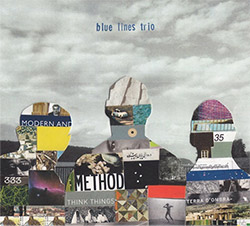
With all the tongue-in-cheek aspects of Dutch improvisers, the piano trio of Michiel Scheen on piano, Raoul van der Weide on bass, crackle box & sound objects and George Hadow on drums, all hailing from a superb pedigree of European Free Improv involvement, show their connection through comprehensible playing with a wonderful sense of humor in their approach to delightfully smart playing.
In Stock
Quantity in Basket: None
Log In to use our Wish List
Shipping Weight: 3.00 units
EU & UK Customers:
Discogs.com can handle your VAT payments
So please order through Discogs
Sample The Album:
Michiel Scheen-piano
Raoul van der Weide-bass, crackle box, sound objects
George Hadow-drums
Click an artist name above to see in-stock items for that artist.
UPC: 8714835106401
Label: Casco Records
Catalog ID: 002
Squidco Product Code: 31124
Format: CD
Condition: New
Released: 2014
Country: Netherlands
Packaging: Cardboard Gatefold
Recorded at the Bimhuis, in Amsterdam, The Netherlands, on March 5th, 2014, by Arnold de Boer.
"Sometimes, CD-releases of new Dutch jazz and improvised music can really surprise one. The Amsterdam based Blue Lines Trio seems to be a very good working unit, a collaboration between three generations of musicians. Michiel Scheen, for several years worked within the Maarten Altena Ensemble, and besides this trio, he now regurarly works as a duo with saxophonist and clarinetist Tobias Delius and with the Jan Nijdam Quartet. Raoul van der Weide has worked with Guus Jansen, and currently works in a trio with John Dikeman and Klaus Kügel, furthermore he jams with a lot of the new generation of improvisors that visit or live in Holland. George Hadow is a young British drummer who works with the Galm Quartet and many improvisers of all generations in and around Amsterdam.
The debut CD of this trio is remarkable. There are pieces, musical theme's that generate improvisations, but there are also freely improvised sequences. In general, what all the tracks show, is that the three musicians carefully listen to, and give room to each other.
A lot of free improvised music has such a density that the listener could lose focus, on this CD however, the improvising is crystal clear. The players spontaneously seem to pick a musical motive and elaborate on it carefully. The process doesn't get boring: they sometimes intuitively throw in contrasting material to 'refresh' the flow. And that offers the possibility to repeat things they have played before, which provides a structure to the improvisation, not to be heard often. Might this maybe be a new form of what we call 'instant composition'? That initial musical motive defines the character of the piece, so no track resembles others, every track is an entity and has a character of its own.
The rhythmic concept of the trio is exceptional: themselves, they call it 'throbbing swing' or 'dribble-swing', a curious mixture of jazz-swing and free-pulsating movement. Like three horses on a span, not in a military rhythmic unison, but a clopper-de-clop-stay-as-close-as-can-be fashion. Three individual and separate, but closely related, 'lines'.
Another feature of the music from the trio is their melodic and harmonic alertness. They seem to catch each others pitches perfectly, also not to be heard often in freely improvised music.
All of which makes the CD a very diverse and colorful 'contemporary improvised music' album.
The pieces, the theme's, seem to be written down and arranged for the 'cast'. They sound like bop and soul-jazz (in the case of the two compositions by the late saxophonist and composer Paul Termos), post-bop, post-free-jazz, and sometimes like contemporary academic music. One could identify influences by Thelonious Monk, Cecil Taylor, Olivier Messiaen, Oscar Pettiford, Charles Mingus, David Izenzon, Paul Motian and Han Bennink.
"Solid" starts as a post-boppy-blues-free-motion-indefinite-swing piece, but then breaks up in a staccato improvisation that leads to free Monkish-piano variations. It's got a funny 'Salt Peanuts' reference.
"Improvisation 538" starts with arco bass with tonal references, piano and drums match this with their variation of a similar kind of 'sonic production': plucking snares on the inside of the piano and brushes on skin and cymbals.
Paul Termos' piece "Kop op" is a brickwork bebop-like theme leading to a drumsolo that get's 'attacked' by Cecil Taylor-ish interventions. Not quite a 'logical' approach and maybe prefabricated (so this track convinces me the least), but the return to the theme out of fortissimo free-jazz is very well executed and 'a sound of surprise'.
"Idols" contains piano-chords that I cannot decipher (well, I'm an amateur pianist), but they're certainly not the standard II-V-I jazz-changes or free-jazz clusters. It's seems to be an idiom in itself. The rhythmic unison by Hadow's drums is magical! The way he varies the composition is a link to the the improvisation after the theme. I like that approach!
"Not yet" by Van der Weide is a peaceful haven, the theme is a continuous variation of four notes, but has nothing to do with so called 'minimal music'. It is more like a clockwork that leads into spacious and time-stretched improvisations with overtones on bass and cymbals and Messiaen-like harmonies on piano.
In "Ingredients 539" the trio-members have a grab at the mainstream jazz idiom, but the grab really is a child's play with conventional elements. The 'way-to-long' bass line-solo by Raoul van der Weide is hilarious! This music is a preposterous out-of-proportion jazz-pastiche, but never tasteless.
"Stumble" is an emotional heartfelt cry, bluesy free-jazz, with a touch of South African pianist Abdullah Ibrahim's left hand playing. Exceptions excluded, the Dutch improv scene is not really known for this kind of direct speaking from the heart.
The CD closes with "Sigh", a ballad with Ellingtoneske chords and warmth. A closer listen reveals a little musical joke: the melody is all chromatic, except for a 'gigantic' leap of a minor third (!) at the end of each section.
Careful and repeated listening sessions reveal more intelligent musical jokes throughout the album. But they are more hidden than outspoken. The maybe typical Dutch irony is less on the foreground, I would say raised to a higher and more abstract level and to be discovered only by attentive listening."-Chris Naat, Jazz Music Reviews
Get additional information at Jazz Music Reviews
Artist Biographies
• Show Bio for Michiel Scheen "In 2012 pianist and composer Michiel Scheen (1963, Amsterdam) joined Raoul van der Weide (bass, cracklebox, sound objects) and George Hadow (drums) in the Blue Lines Trio, a initiative by Van der Weide. In 2016 the trio invited Ada Rave (tenorsaxophone), Bart Maris (trumpets) and Wolter Wierbos (trombone) to form the Blue Lines Sextet. Besides that, Scheen regularly plays a duo with saxophonist and clarinetist Tobias Delius and with the Jan Nijdam Quartet. After a retreat from 2000 untill 2004, he formed a new quartet with Ab Baars, Han Bennink and Ernst Glerum. They recorded the well received CD "Dance, my dear?".From 1986 untill 1999 Scheen worked with many musicians, amongst others with Ab Baars, Conrad Bauer, Johannes Bauer, Han Bennink, Jaap Blonk, Anthony Braxton, Tobias Delius, Cor Fuhler, Hans Hasebos, Gerry Hemingway, Wiek Hijmans, Guus Janssen, George Lewis, Misha Mengelberg, Roscoe Mitchell, Butch Morris, Jacques Palinckx, Evan Parker, Hans Reichl, Vladimir Tolkachev, Tang Xu and John Zorn. He also worked with the international ensemble Ohrkiste, led by Radu Malfatti (a.o. with Evan Parker), the Paul Termos Tentet and Dubbel Express, the electro-acoustic trio YPON (with Michael Barker and Wiek Hijmans), Structures, led by Peter van Bergen, Cardueles Cardueles (leader: Cor Fuhler), the Dickinson Projekt by Ig Henneman, Kenvermogen (with a.o. Wiek Hijmans and Hans Hasebos), the Maarten Altena Ensemble (collaborations with a.o. Remco Campert, Mark Terstroet, Anthony Braxton, Roscoe Mitchell, Lawrence Butch Morris, John Zorn and theatergroup Discordia; tours through Europe, USA, Canada and USSR), the theaterproduction "Elektra and Orestes" by director Erik-Ward Geerlings and composer Arthur Sauer (theatergroup FACT Rotterdam), Seafood (led by Alan Laurillard) and the Object Theatre Orchestra (a duo with Augusto Forti). In 1991 Michiel Scheen was commisioned by NOS-radio and Jazzmarathon Groningen to compose a live-set, which resulted in the project "Rijs", with a.o. Jaap Blonk, Tristan Honsinger and Paul Koek. He initiated projects and ensembles (Filiaal, the Michiel Scheen Sextet and -Quartet and TRIKLINION), with a.o. Ab Baars, Jaap Blonk, Michael Vatcher, Frank van Berkel and Hans van der Meer. Since 1990 Scheen recieved commisions and stipendia for his work as a composer from the "Fonds voor de Scheppende Toonkunst" (the Dutch fund for composers). Scheen also joined the Dutch jazz-musicians union: the BIM (Beroepsvereniging van Improviserende Musici). During 1994-1996 he was a member of the board, and during 1996-1998 he was the chairman of this union. As a chairman Scheen engaged in contacts with the Ministery of Education, Culture and Science, several funds for artists and other unions. He also was involved in the "Stichting de Centrale", a service-unit for freelance musicians." ^ Hide Bio for Michiel Scheen • Show Bio for Raoul van der Weide "Raoul van der Weide (Fontenailles / Fr, 1949) played 6 years of classical violin in the Northern Netherlands Youth Orchestra. As a bassist he developed largely autodidactic but also studied classical double bass at John Clayton and Norma Brooks. Contrast point at Guus Janssen. Feel inspired by inspiration and improvisational practice in the free but unstructured views of various musicians like Paul Termos, Guus Janssen, Lennie Tristano, Misha Mengelberg, Jimmy Giuffre, Steve Lacy, Ornette Coleman, Derek Bailey, Charles Mingus and Munir Bashir. As an improviser, the creative focus is on the development possibilities of open personal aesthetics in the broadest sense. The continued deepening of its own sound, intonation and power of expression - of the musical fingerprint - is considered important.Van Raoul van der Weide published the solo CD 'Passages' (GeestGronden # 24 / www.geestgronden.com) at the beginning of 2006, to which De Volkskrant and promising 4 stars discussion was dedicated. Worked together in Bert Koppelaar's POINT OF ORCHESTURE, Paul Termos Trio, Guus Jansen Septet / Octet / Orchestra, Burton Greene Quartet / Trio Spazio Trio (with K. Bauer and Guenther Sommer), Luc Houtkamp Quartet, Ab Baars Sextet, Peter Zegveld projects ('Caspar Rapak' and 'Statua Tumultus'), The Gravitones (Winners Dordtse Jazz Prize 1995), Joost Buis & The Famous Astronotes, Sound-Lee! Quartet ('Plays the Music of Lee Konitz'), New Crosscurrents Sextet." ^ Hide Bio for Raoul van der Weide • Show Bio for George Hadow "George Hadow represents the newest wave of improvisers to hit the Dutch scene. Like many of the active newcomers, George is an expat, hailing from Devon in the UK. George first came to the Netherlands in 2011 to take part in the Dutch Impro Academy, where he studied with Han Bennink and Michael Moore, among others. He has quickly developed into a mature musician, playing with acute sensitivity as well as unbridled power. The list of regular groups with whom he performs is impressive for its scale and diversity: The Blue Lines Trio, Mulligan - Baker Project, Terrie Ex/Raoul van der Weide/George Hadow, Aya ba yaya, Almeida/Dikeman/Hadow, Molino, Galm Quartet. George has also collaborated with Andy Moor, Roy Paci, Anne-James Chaton and Joe Williamson, The Ex and Cactus Truck as well as countless ad hoc combinations." ^ Hide Bio for George Hadow
6/25/2025
Have a better biography or biography source? Please Contact Us so that we can update this biography.
6/25/2025
Have a better biography or biography source? Please Contact Us so that we can update this biography.
6/25/2025
Have a better biography or biography source? Please Contact Us so that we can update this biography.
Track Listing:
1. Solid 4:40
2. Improvisation 538 3:14
3. Kop Op 4:00
4. Improvisation 536 3:42
5. Dark Goeree 6:45
6. Idols 3:31
7. Improvisation 541 4:53
8. Not Yet 5:55
9. Ingredients 539 3:50
10. Stumble 5:42
11. Improvisation 537 2:33
12. Sigh 2:38
Improvised Music
Free Improvisation
European Improvisation, Composition and Experimental Forms
Trio Recordings
Objects and Home-made Instruments
Staff Picks & Recommended Items
Search for other titles on the label:
Casco Records.


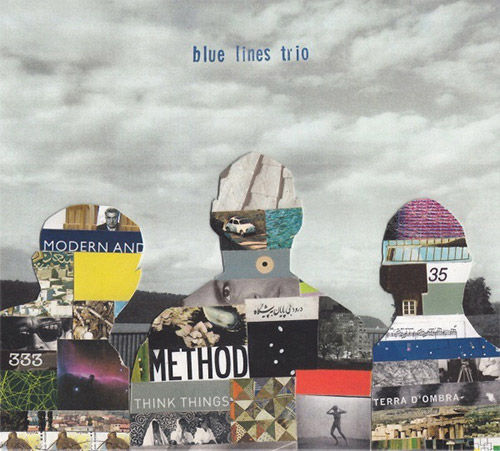
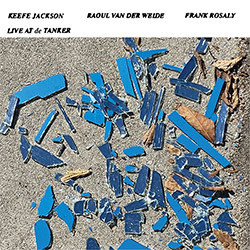
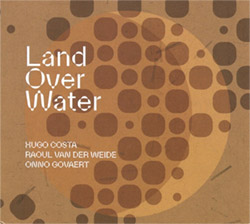
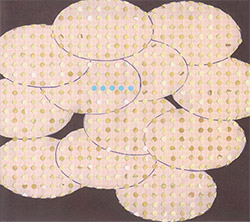
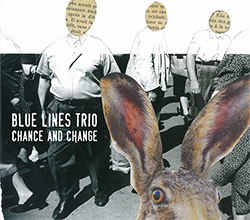
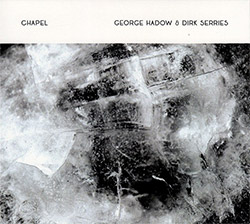

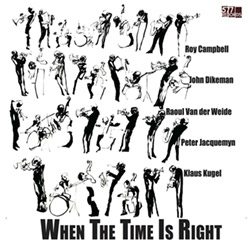
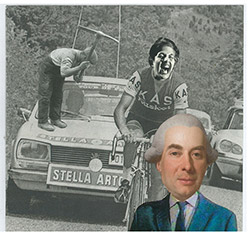
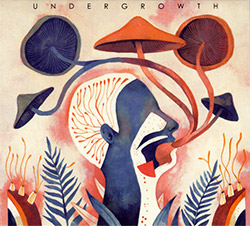

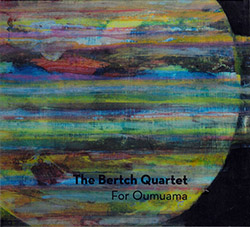
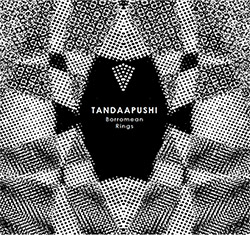



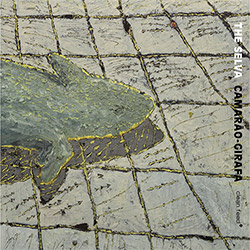
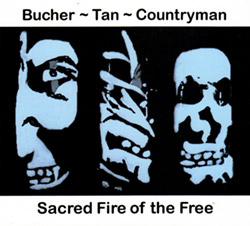

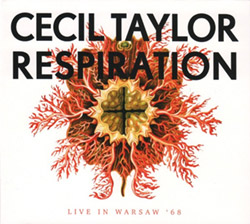
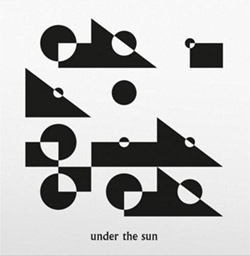





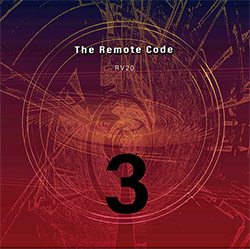



![Eternities: Rides Again [CASSETTE]](https://www.teuthida.com/productImages/misc4/36247.jpg)

![Lopez, Francisco: Untitled (2021-2022) [2 CDs]](https://www.teuthida.com/productImages/misc4/36438.jpg)




![Eventless Plot | Haarvol: The Subliminal Paths [CASSETTE + DOWNLOAD]](https://www.teuthida.com/productImages/misc4/36232.jpg)












![Eventless Plot | Francesco Covarino: Methexis [CASSETTE + DOWNLOAD]](https://www.teuthida.com/productImages/misc4/36231.jpg)

![Brown, Dan / Dan Reynolds: Live At The Grange Hall [unauthorized][CASSETTE]](https://www.teuthida.com/productImages/misc4/36245.jpg)





![Das B (Mazen Kerbaj / Mike Majkowski / Magda Mayas / Tony Buck): Love [VINYL]](https://www.teuthida.com/productImages/misc4/36329.jpg)


![Hemphill Stringtet, The: Plays the Music of Julius Hemphill [VINYL]](https://www.teuthida.com/productImages/misc4/36409.jpg)



![Halvorson, Mary Septet: Illusionary Sea [2 LPS]](https://www.teuthida.com/productImages/misc4/17952.jpg)




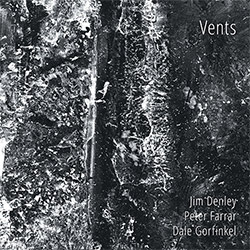
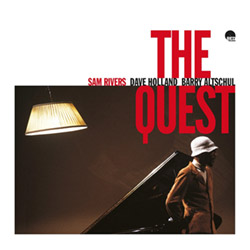
![Re-Ghoster Extended: The Zebra Paradox [VINYL]](https://www.teuthida.com/productImages/misc4/36204.jpg)
![FDF Trio: Possibility And Prejudices From Within A Cup [VINYL]](https://www.teuthida.com/productImages/misc4/36205.jpg)
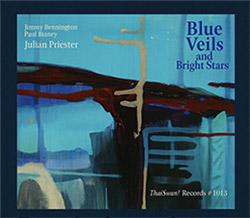

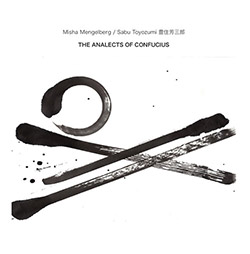

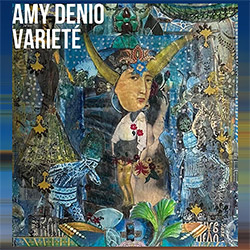



![Money : Money 2 [2 CDs]](https://www.teuthida.com/productImages/misc4/35894.jpg)




![Klinga, Erik: Elusive Shimmer [VINYL]](https://www.teuthida.com/productImages/misc4/36258.jpg)
![CHANGES TO blind (Phil Zampino): Volume 9 - I Wave on a Fine Vile Mist [CD + DOWNLOAD]](https://www.teuthida.com/productImages/misc4/36061.jpg)

![Wallmart / Rubbish: Asset Protection [split CD]](https://www.teuthida.com/productImages/misc4/35900.jpg)


![+Dog+: The Family Music Book Vol. 5 [2 CDs]](https://www.teuthida.com/productImages/misc4/35897.jpg)
![Kuvveti, Deli : Kuslar Soyledi [CASSETTE w/ DOWNLOAD]](https://www.teuthida.com/productImages/misc4/36107.jpg)

![Nakayama, Tetsuya: Edo Wan [CASSETTE w/ DOWNLOAD]](https://www.teuthida.com/productImages/misc4/36105.jpg)




![Yiyuan, Liang / Li Daiguo: Sonic Talismans [VINYL]](https://www.teuthida.com/productImages/misc4/35957.jpg)






![Palestine, Charlemagne / Seppe Gebruers: Beyondddddd The Notessssss [VINYL]](https://www.teuthida.com/productImages/misc4/36206.jpg)
![Palestine, Charlemagne / Seppe Gebruers: Beyondddddd The Notessssss [NEON GREEN VINYL]](https://www.teuthida.com/productImages/misc4/36207.jpg)

![Laubrock, Ingrid: Purposing The Air [2 CDs]](https://www.teuthida.com/productImages/misc4/35639.jpg)

![Yoko, Ono / The Great Learning Orchestra: Selected Recordings From Grapefruit [2 CDs]](https://www.teuthida.com/productImages/misc4/35841.jpg)









![Zorn, John / JACK Quartet: The Complete String Quartets [2 CDs]](https://www.teuthida.com/productImages/misc4/35609.jpg)

![Lonsdale, Eden: Dawnings [2 CDs]](https://www.teuthida.com/productImages/misc4/35480.jpg)



![Sorry For Laughing (G. Whitlow / M. Bates / Dave-Id / E. Ka-Spel): Rain Flowers [2 CDS]](https://www.teuthida.com/productImages/misc4/35985.jpg)

![Rolando, Tommaso / Andy Moor : Biscotti [CASSETTE w/ DOWNLOADS]](https://www.teuthida.com/productImages/misc4/36106.jpg)


![Electric Bird Noise / Derek Roddy: 8-10-22 [CD EP]](https://www.teuthida.com/productImages/misc4/35970.jpg)








![Elephant9 : Mythical River [VINYL]](https://www.teuthida.com/productImages/misc4/34624.jpg)



![Elephant9 with Terje Rypdal: Catching Fire [VINYL 2 LPs]](https://www.teuthida.com/productImages/misc4/35355.jpg)
![Deerlady (Obomsawin, Mali / Magdalena Abrego): Greatest Hits [VINYL]](https://www.teuthida.com/productImages/misc4/34876.jpg)







![Surplus 1980: Illusion of Consistency [CD]](https://www.teuthida.com/productImages/misc4/35069.jpg)
![Staiano, Moe: Away Towards the Light [VINYL + DOWNLOAD]](https://www.teuthida.com/productImages/misc4/35037.jpg)
![Coley, Byron: Dating Tips for Touring Bands [VINYL]](https://www.teuthida.com/productImages/misc4/17906.jpg)

![Lost Kisses: My Life is Sad & Funny [DVD]](https://www.teuthida.com/productImages/misc4/lostKissesDVD.jpg)